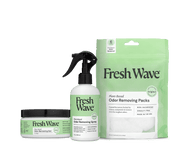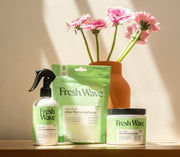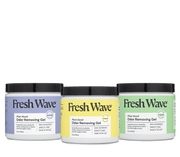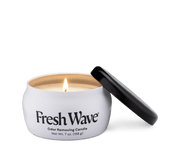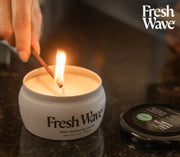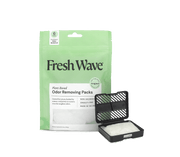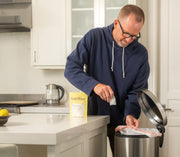Why You Should Avoid Ammonia Household Cleaners
-
Fumes
-
Potency
-
Environmental consequences
-
Dangers when mixing with bleach
The benefits of routinely cleaning your home are undeniable. Regular cleaning helps fight germs that could make you and your family sick. In addition, a clean home environment is more welcoming, less stressful, and it may even positively impact your mental health.
Today, there are thousands of products available to help you clean every surface in your home. Unfortunately, while many of these products may work effectively, some may do more harm than good. Therefore, reading the ingredients list on cleaning products is essential. Taking the time to read this list allows you to know for sure what you’re exposing yourself and your family to and can help you avoid potentially harmful ingredients, such as household ammonia. In addition, learning about cleaning with ammonia dangers will allow you to make a more informed choice when shopping for cleaning products.
What is Ammonia Used For?
Ammonia is a chemical made from one part nitrogen and three parts hydrogen. Roughly 80% of all manufactured ammonia is used as fertilizer. It is also a component of plastics, textiles, dyes, explosives and other chemicals.
Household ammonia is a solution of 5 to 10% ammonia in water. However, industrial ammonia for cleaning may contain up to 25% ammonia. Some of the most common types of ammonia cleaning products include:
- Glass cleaners
- Disinfectant aerosol sprays
- Surface cleaners
- Tile and wood floor cleaners
- Carpet cleaners
- Pet stain removers
- All-purpose and multi-surface cleaning products
Some people also choose to do their cleaning with ammonia mixed with additional water or on its own. Manufacturers add ammonia to cleaning products because it dissolves dirt and grime. In addition, it evaporates rapidly after application and is less likely to leave behind streaks and spots on reflective surfaces.
Reasons to Avoid Ammonia-Based Cleaning Products
So is ammonia bad for you? Science says that it can be. These are some of the dangers of cleaning products with ammonia that you need to be aware of:
Fumes
When you inhale ammonia fumes, the chemical reacts with moisture in your nasal passages and respiratory tract. It can cause an unpleasant burning sensation within a few minutes of exposure. In some cases, this can progress to airway obstruction, making it difficult to breathe. As a result, you may cough or gasp for air. Exposure to large amounts of ammonia fumes can damage the airways and lungs and lead to potentially life-threatening respiratory distress.
Ammonia’s harsh scent should alert you to the fact that you need to use caution. But unfortunately, as you continue cleaning with ammonia, you become less and less aware of the scent. Then, believing the fumes have dissipated when they have not, you may choose to close windows or vents prematurely.
Potency
Ammonia is highly corrosive. If it comes in contact with your skin, it can cause rashes and burns, and, should it get into your eyes, it could cause extreme pain, permanently damage your eyes and even cause blindness. Unfortunately, some people who come into contact with ammonia don’t realize they have injured their eyes until up to a week after exposure when it becomes harder to treat. This can then make it very difficult for doctors to correct the situation.
Environmental Consequences
Ammonia doesn’t just pose health risks for people and pets. It is also detrimental to the planet. The chemical is hygroscopic, meaning it draws in water and can linger in the environment. One study of ammonia fertilizers found that the chemical reduces biodiversity by making biomes inhospitable to some species. Researchers have also determined that it can damage wild plant life even in low concentrations.
If you fill a bucket with ammonia and water for cleaning and then dispose of the solution afterward by dumping it into the drain inside the house or somewhere outside, the unused cleaning product will eventually enter the environment. Doing this is unlikely to have as significant an impact as fertilizers and other major sources of ammonia pollution. However, you are still contributing to the problem in a small way.
Dangers of Mixing with Bleach
Cleaning with ammonia and bleach at the same time can be dangerous. Chlorine bleach or sodium hypochlorite forms chlorine gas when mixed with ammonia. Exposure to even small amounts of this gas can irritate your eyes, nose and throat and cause coughing and breathing problems. At high levels, chlorine gas can cause chest pain, pneumonia, vomiting and respiratory emergencies. Extremely high levels of exposure can be deadly.
In addition, cleaning with ammonia can be inconvenient. To protect yourself from the above risks, you need to wear goggles and gloves and open windows or vents. All of this adds extra steps to your household cleaning chores.
Try Non-Toxic Cleaning Products Instead
If you’re concerned about the dangers of cleaning with ammonia, be sure to read the labels on all cleaning products before you use them in your home. You will likely see it listed as ammonia hydroxide or household ammonia on the label.
One way to avoid ammonia cleaner entirely is to purchase products that you know are nontoxic. It’s important to also consider the safety and ingredients for other products in your home, like laundry detergents, odor eliminators, soaps and more. Fresh Wave odor removal products that have the Safer Choice label are not only free of ammonia but are also proven to meet U.S. Environmental Protection Agency (EPA) safer product standards to show that they do not contain:
- Carcinogens
- Reproductive and developmental toxins
- Toxins dangerous to aquatic life
- Ingredients that persist for long periods in the environment
- Volatile organic compounds (VOCs) that cause respiratory problems and indoor air pollution
Safer Choice products also must meet effectiveness standards and be shown to be of a pH that makes them unlikely to irritate or injure the skin or eyes. In addition, fresh Wave products with the Safer Choice label are gentle, safe for your family and pets, and can eliminate unpleasant odors in your home, car, locker and other areas.


